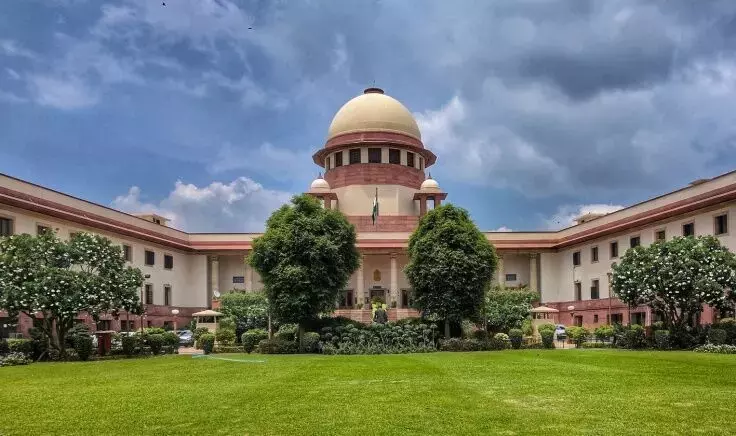Judging the Judges: Why India's Collegium System Has Failed

The collegium system for appointing judges was supposedly created to protect judicial independence, but it's riddled with flaws. The most troubling issue is its complete lack of transparency in the selection process. Collegium recommendations remain entirely confidential with unclear criteria, raising serious questions about transparency and accountability.
Justice should be the primary virtue of social institutions, just as truth is for systems of thought. As Emerson wisely noted, a person becomes "godlike" when speaking for justice. Yet today, these supposedly godlike figures are caught in unseemly disputes with the executive branch—not over upholding the rule of law or protecting citizens' rights, but over the appointment of judges to the High Courts and Supreme Court! If this time had instead been spent promoting good governance, society would have benefited greatly.
This contentious issue began decades ago between the judiciary and the other two pillars of Indian democracy—the legislature and executive. While the Constitution ensures independence and accountability for all three branches, when the judiciary started appointing its own judges (deviating from constitutional provisions), important questions arose: Is this system just and constitutional? Does self-appointment meet transparency and accountability standards?
Currently, Supreme Court and High Court judges in India are appointed through the collegium system. This system isn't specified in the Constitution but evolved from Supreme Court decisions known as the "Three Judges Case." The collegium system gives final appointment authority to a committee of the Chief Justice and four senior-most judges. However, Article 124 of the Constitution only provides for consultation with the Chief Justice and senior judges, while giving the President of India final decision-making power.
Though supposedly protecting judicial independence, the collegium system has serious flaws. Its selection process lacks transparency completely. Recommendations remain confidential with unclear criteria, raising accountability concerns. Neither the public nor Parliament can challenge collegium decisions, undermining democratic accountability. There have been recurring allegations of biased selections through the collegium—appointments often based on personal recommendations, acquaintances, and regional bias. No clarifications are provided, and no complaints are investigated. Shouldn't such an arbitrary, malfunctioning selection process be fixed?
The Constitution's framers envisioned objectivity and neutrality in judicial appointments, with complementary roles for the executive, judiciary, and President. But the collegium system has tilted this balance toward the judiciary, which isn't democratic. In 2014, Parliament unanimously passed the National Judicial Appointments Commission Act (NJAC) to bring transparency and accountability to judicial appointments. In 2015, the Supreme Court declared this Act unconstitutional, claiming NJAC would endanger judicial independence!
No law or procedure is perfect, and neither was NJAC. But it represented significant progress toward transparency and public participation. The collegium system was meant to reduce political interference in High Court and Supreme Court appointments that was affecting judicial independence, as politicians were selecting unsuitable people with political affiliations. Competence and neutrality were supposedly abandoned. But when judges themselves engage in blatant nepotism and select inappropriate judges through the collegium, doesn't this taint the entire system? How will this dangerous situation improve? Those democratically elected by the public—who are paramount in our democracy—have no say in appointing judges, despite constitutional provisions, because of the collegium system's arbitrary dictates.
Recently, the judiciary's credibility was further damaged when fifty crore rupees were found at a High Court judge's residence. Yet silence persists. Don't citizens have the right to know where the fifty crores found in Justice Yashwant Verma's house came from? Why isn't Justice Verma being openly questioned? Are judges above the law? Shouldn't they be interrogated by investigating agencies? Are judges not subject to the rule of law? Why are these honorable Lords—who quickly order CBI investigations for minor corruption cases—shockingly silent when fifty crore rupees are discovered at a High Court judge's home? Who else has ever been given the right to internal investigation in a criminal case?
Covering up such an egregious incident with internal investigations makes a mockery of the rule of law. It will worsen corruption as the judiciary loses moral authority to fight corruption or enforce accountability. Who will guard the guardians? How can secrecy/lack of punishment shield judges even when caught with evidence?
The judiciary must answer a crucial question: When the democratically elected government can make all decisions affecting billions of lives—national security, nuclear weapons, war and peace, trade, economics, employment, food, education, and health—how can it be declared incapable of appointing a few judges? Why some judges insist on claiming this unchecked appointment power for themselves defies understanding.
A permanent solution requires making judicial appointments transparent, accountable, and balanced. The collegium system should be abolished, and as the Constitution provides, the government and judiciary should work together to resolve this issue. Open minds, empathy, eliminating holier-than-thou attitudes, and constructive cooperation will help create a robust constitutional system that appoints only capable and honest people to judicial positions. Then justice can be served to all.
Judicial independence is necessary but doesn't justify a completely closed, opaque system. In India's democracy, where transparency, accountability, and public participation are essential, judges should be appointed through a balanced, constitutional, and open process. The increasing questions about judges' integrity are also questioning their selection through the collegium system. The eroding faith in the judiciary must be urgently addressed—Justice calls upon Judges to look beyond self-interest and serve the greater good.
